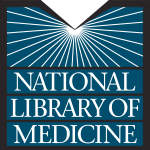- Industry: Library & information science
- Number of terms: 152252
- Number of blossaries: 0
- Company Profile:
The National Library of Medicine (NLM), on the campus of the National Institutes of Health in Bethesda, Maryland, is the world's largest medical library. The Library collects materials and provides information and research services in all areas of biomedicine and health care.
Affecting only a specific or limited part of the body rather than the entire body.
Industry:Health care
All of the physical and chemical processes that produce or use energy within the body. Drug metabolism refers to the breakdown of drugs in the body.
Industry:Health care
All organs involved in the production and excretion of urine plus all organs involved with reproduction. Organs of the genitourinary tract include the kidneys, bladder, fallopian tubes, and penis.
Industry:Health care
Amino acids that are chemically linked to one another. Proteins are made of peptides.
Industry:Health care
An abnormal increase of eosinophils (a type of white blood cell) in the blood, tissues, or organs. Eosinophilia is often a response to infection or allergens (substances that cause an allergic reaction).
Industry:Health care
An accumulation of fat on the back of the neck between the shoulders. A dorsocervical fat pad may be due to use of some antiretroviral (ARV) drugs.
Industry:Health care
An accumulation of fat on the back of the neck between the shoulders. A dorsocervical fat pad may be due to use of some antiretroviral (ARV) drugs.
Industry:Health care
An adverse reaction, such as rash or redness, at the site of an injection.
Industry:Health care
An antibody bound to an antigen. Immune complexes are part of a normal immune response. However, when immune complexes accumulate in the blood, they can cause autoimmune disorders, infections, and malignancies.
Industry:Health care
An antibody bound to an antigen. Immune complexes are part of a normal immune response. However, when immune complexes accumulate in the blood, they can cause autoimmune disorders, infections, and malignancies.
Industry:Health care
